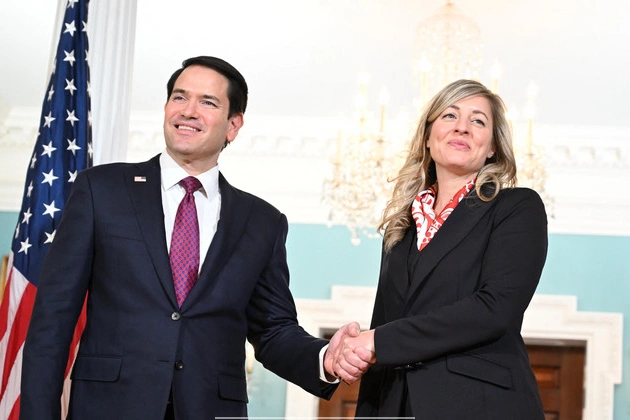
Canada has decided to take a firm stand against the recent tariffs imposed by U.S. President Donald Trump on global steel and aluminum imports. In response to these actions, Canada will be implementing tariffs aimed at C$29.8 billion worth of American products.
Finance Minister Dominic LeBlanc emphasized that Canada cannot remain passive while its steel and aluminum industries are unfairly targeted. The retaliatory tariffs will be imposed on various American imports, including steel, aluminum, computers, sports equipment, and cast iron products.
Canada’s Resolute Stance
Foreign Minister Mélanie Joly expressed Canada’s unwavering commitment to defending its interests in the face of ongoing trade tensions. She highlighted the daily challenges Canada faces and asserted that the country will not back down from protecting its industries.
This latest move follows Canada’s previous imposition of C$30 billion in counter tariffs on U.S. goods in response to earlier concerns raised by President Trump. The escalating trade war has been marked by shifting justifications for tariffs, with President Trump’s intentions appearing increasingly unpredictable.
Leadership and Unity
Prime Minister-designate Mark Carney has pledged to maintain the pressure on the U.S. until the country shows respect towards Canada. He emphasized the importance of credible commitments to fair trade practices and the need for a mutually beneficial resolution to the trade dispute.
Carney’s leadership style, characterized by his crisis management skills, has been positioned as essential during this turbulent period. His upcoming inauguration as prime minister signals a new phase in Canada’s approach to trade negotiations.
Ontario Premier Doug Ford will be engaging with U.S. officials in an effort to de-escalate tensions and focus on the negotiation process established by President Trump. The discussions aim to address the global tariff decisions before the looming deadline.
Industry Perspectives
Industry leaders in Canada have underscored the importance of maintaining a balanced response to U.S. actions. While advocating for the defense of domestic industries, they have also emphasized the need to avoid unnecessary escalation in the trade dispute.
Matt Walker, president of the Canada Metal Processing Group, highlighted the potential negative impact of tariffs on consumers who rely on high-quality Canadian steel. The tariffs could disrupt supply chains and lead to increased prices, affecting both businesses and consumers.
Canadian sentiment towards the tariffs has been one of increased national pride, with a growing ‘Canada first’ movement gaining momentum in response to external threats. The solidarity and resilience shown by Canadians reflect a strong determination to safeguard the country’s interests.
Global Reactions
Canada’s actions are part of a broader trend of countries responding to escalating trade tensions. The European Union has also announced retaliatory measures in response to President Trump’s tariffs, highlighting the disruptive impact of trade barriers on global economies.
As the trade dispute continues to unfold, it is essential for all parties involved to seek constructive solutions that prioritize economic stability and cooperation. The evolving dynamics of international trade underscore the importance of dialogue and negotiation in resolving conflicts and fostering sustainable economic growth.











